简体中文
繁體中文
English
Pусский
日本語
ภาษาไทย
Tiếng Việt
Bahasa Indonesia
Español
हिन्दी
Filippiiniläinen
Français
Deutsch
Português
Türkçe
한국어
العربية
Changes in South Korea's Trading Rules
Abstract:South Korean financial market regulators are implementing stringent regulations on contracts for differences (CFDs) trading to enhance transparency, prevent market manipulations, and address recent incidents of losses and volatility in the market, aiming to restore trust and protect investors.
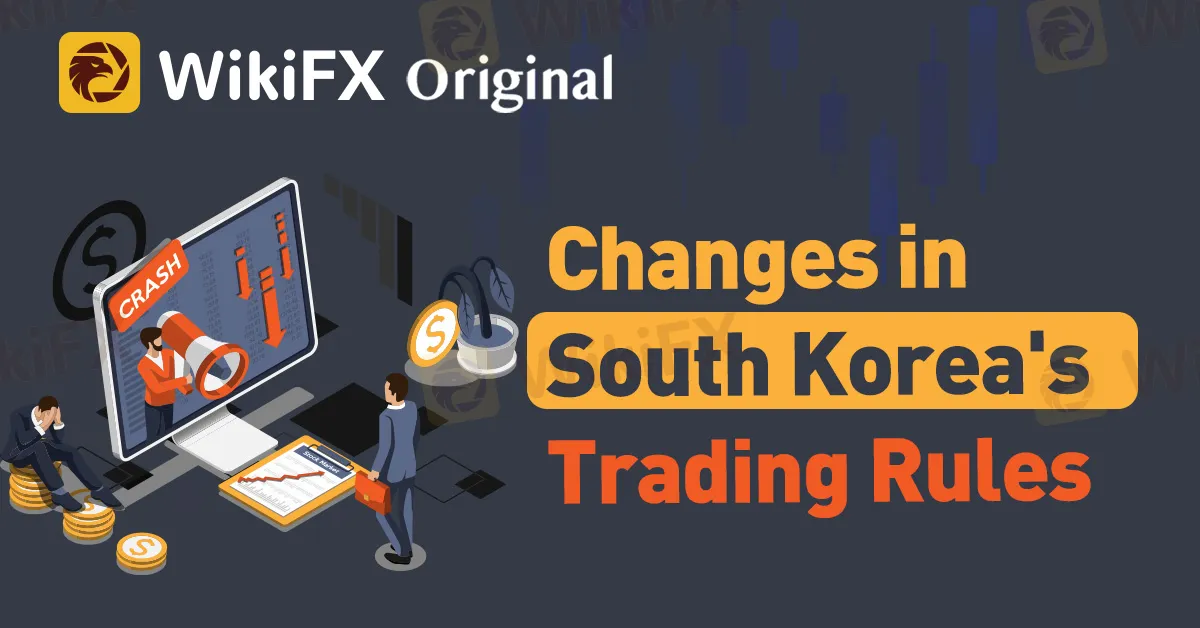
South Korean financial market regulators are set to introduce comprehensive regulations for contracts for differences (CFDs) trading to ensure transparency and prevent market manipulations, according to reports from various local news outlets. The official announcement comes after eight South Korean stocks experienced continuous declines for nearly a week due to the effects of CFDs trading, resulting in losses exceeding 100 billion won ($77 million) as CFDs accounts were liquidated. The Financial Services Commission (FSC), the Financial Supervisory Service (FSS), Korea Exchange, and the Korea Financial Investment Association have jointly unveiled these measures.
In the current regulatory framework, retail investors are categorized as either institutions if their transactions are processed by a local broker, or foreign investors if handled by a foreign broker, leading to confusion regarding the origin of investments. To address this, Kim So-young, Vice Chairman of the FSC, stated that the financial authorities will revamp CFD trading regulations, aiming to provide investors with accurate information about transactions, including the identification of real investors involved and the level of associated liquidation risks. This transparency will enable investors to make informed and prudent investment decisions.

The South Korean authorities also aim to raise the standards for qualifying as a professional investor, making the criteria more stringent. Additionally, brokers will be required to verify the qualification of professional investors every two years. Furthermore, new regulations will mandate face-to-face authentication for opening CFDs accounts, replacing the previous online authentication method without in-person verification.
Meanwhile, the regulators have recommended temporarily restricting CFDs trading and account opening in the country until the new regulations come into effect. Many local brokers have already halted customers from opening new accounts since the end of April, following the controversy surrounding CFDs trading. The FSS conducted inspections on several CFDs brokers, uncovering cases where accounts were opened without proper identification verification and brokers engaged in misleading advertisements for risky investment instruments. The investigation by the FSS is ongoing, including an examination of a brokerage executive, with plans to expand the scope if necessary.
Kim emphasized that recent unfair transactions have damaged trust in the capital market and dampened investment sentiment. The government and relevant institutions acknowledge their significant responsibility and are committed to swiftly and rigorously resolving the issues at hand, aiming to restore trust and rectify the problems that have arisen.
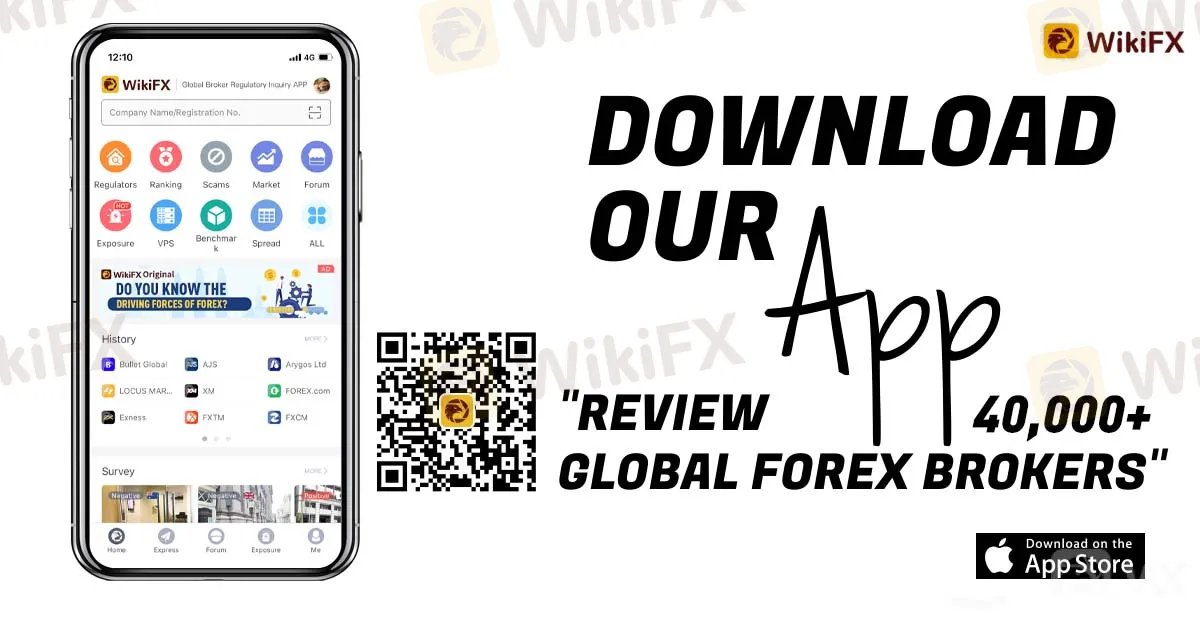
Disclaimer:
The views in this article only represent the author's personal views, and do not constitute investment advice on this platform. This platform does not guarantee the accuracy, completeness and timeliness of the information in the article, and will not be liable for any loss caused by the use of or reliance on the information in the article.
Read more
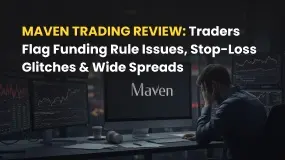
Maven Trading Review: Traders Flag Funding Rule Issues, Stop-Loss Glitches & Wide Spreads
Are you facing funding issues with Maven Trading, a UK-based prop trading firm? Do you find Mavin trading rules concerning stop-loss and other aspects strange and loss-making? Does the funding program access come with higher spreads? Does the trading data offered on the Maven Trading login differ from what’s available on the popular TradingView platform? These are some specific issues concerning traders at Maven Trading. Upset by these untoward financial incidents, some traders shared complaints while sharing the Maven Trading Review. We have shared some of their complaints in this article. Take a look.
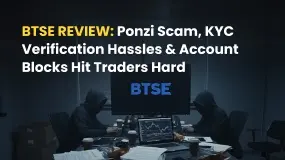
BTSE Review: Ponzi Scam, KYC Verification Hassles & Account Blocks Hit Traders Hard
Have you lost your capital with BTSE’s Ponzi scam? Did the forex broker onboard you by promising no KYC verification on both deposits and withdrawals, only to be proven wrong in real time? Have you been facing account blocks by the Virgin Islands-based forex broker? These complaints have become usual with traders at BTSE Exchange. In this BTSE review article, we have shared some of these complaints for you to look at. Read on!

Amillex Global Secures ASIC Licence for Expansion
Amillex Global gains ASIC AFSL licence, boosting FX and CFDs credibility. Expansion targets Asia, Australia, and institutional trading growth.
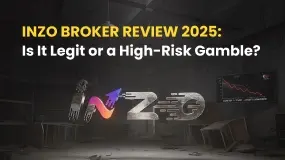
Inzo Broker Review 2025: Is It Legit or a High-Risk Gamble?
When you ask, "Is inzo broker legit?" you want a clear, straight answer before putting your money at risk. The truth about Inzo Broker is complicated. Finding out if it's legitimate means looking carefully at its rules, trading setup, and most importantly, the real experiences of traders who have used it. The broker shows a mixed picture - it has official paperwork from an offshore regulator, but it also has many user warnings about how it operates. This review gives you a fair and fact-based investigation. We will break down all the information we can find, from company records to serious user complaints, so you can make your own clear decision.
WikiFX Broker
Latest News
Forex Expert Recruitment Event – Sharing Insights, Building Rewards
Admirals Cancels UAE License as Part of Global Restructuring
Moomoo Singapore Opens Investor Boutiques to Strengthen Community
OmegaPro Review: Traders Flood Comment Sections with Withdrawal Denials & Scam Complaints
An Unbiased Review of INZO Broker for Indian Traders: What You Must Know
Is Fyntura a Regulated Broker? A Complete 2025 Broker Review
PINAKINE Broker India Review 2025: A Complete Guide to Safety and Services
Is Inzo Broker Safe or a Scam? An Evidence-Based Analysis for Traders
Is Uniglobe Markets Legit? A 2025 Simple Guide to Its Safety, Services, and User Warnings
Is Forex Zone Trading Regulated and Licensed?
Currency Calculator



